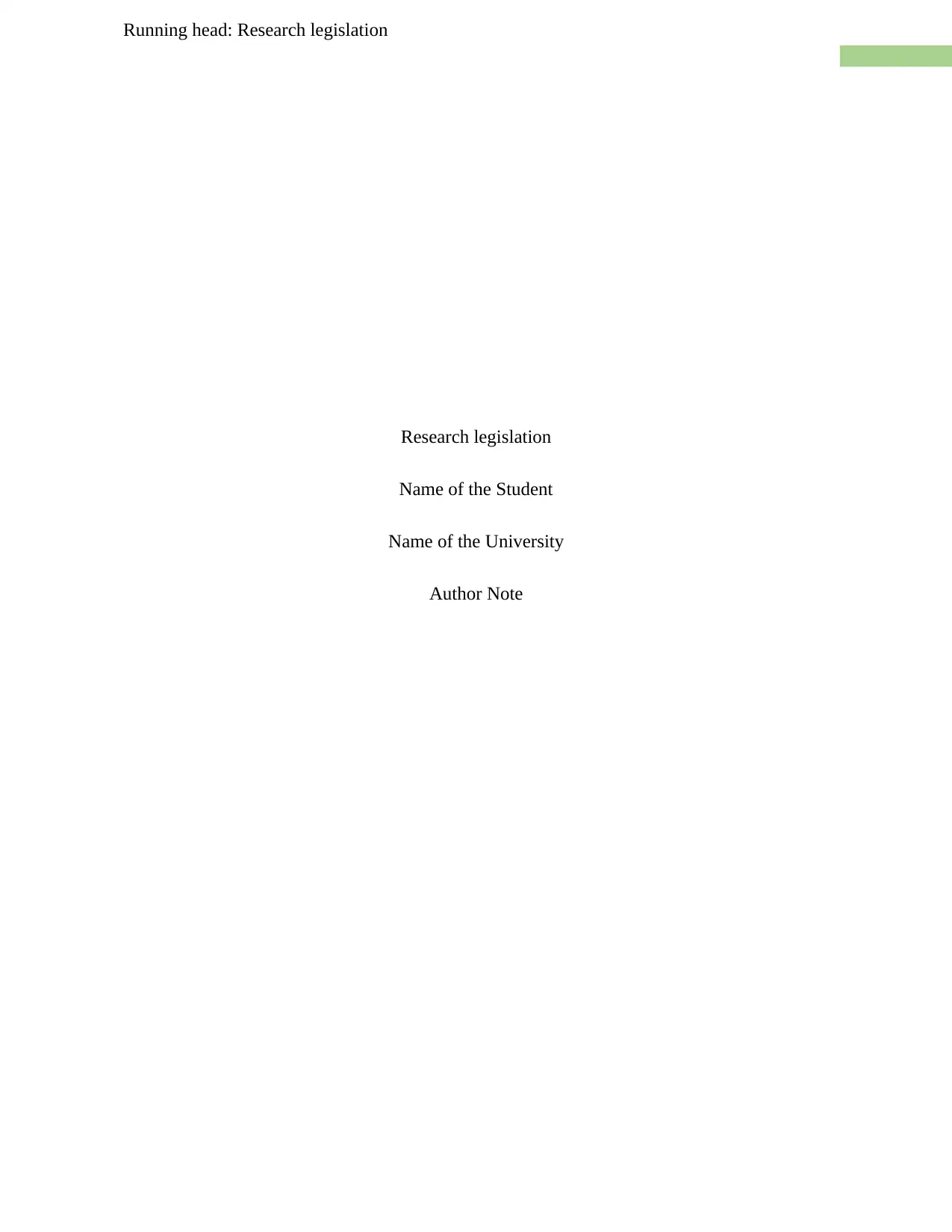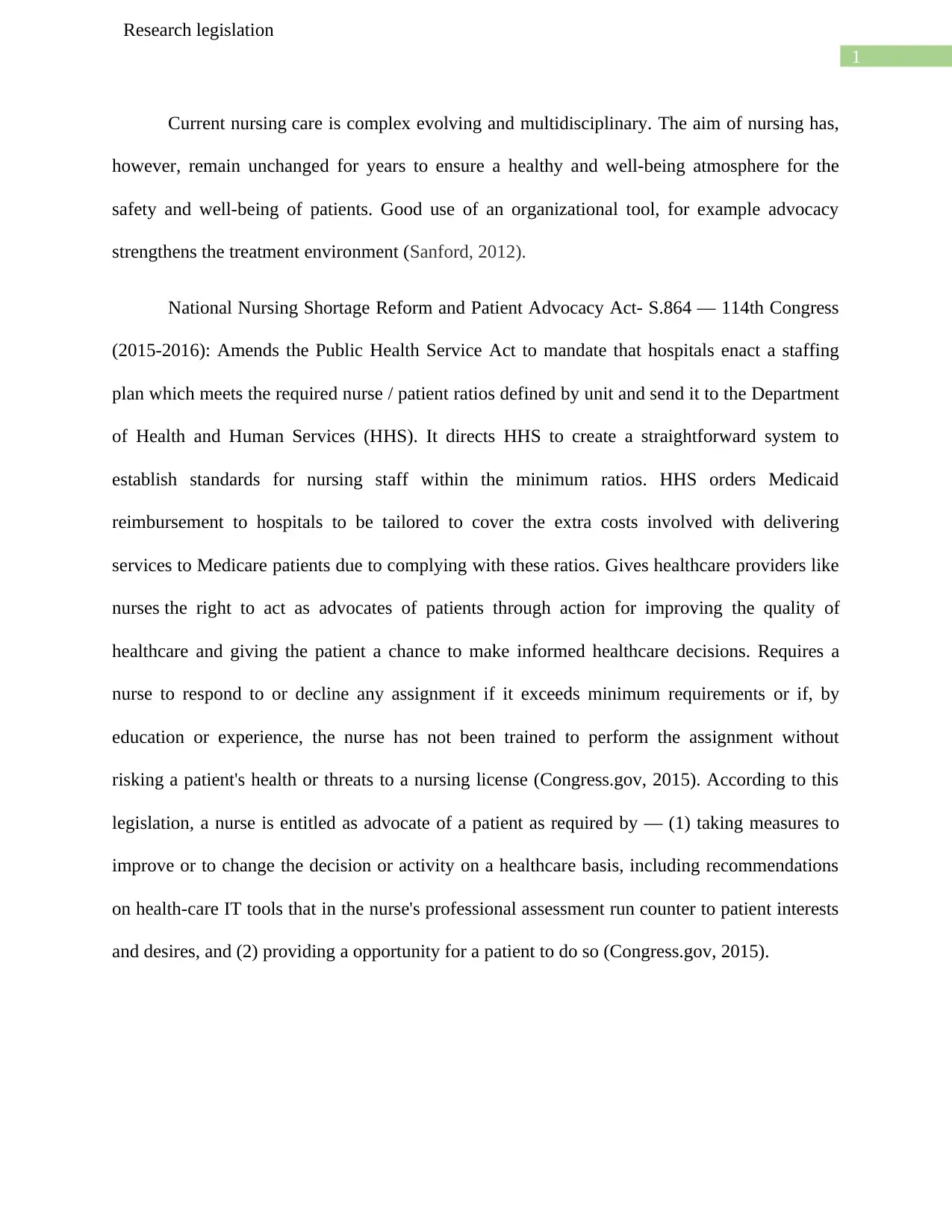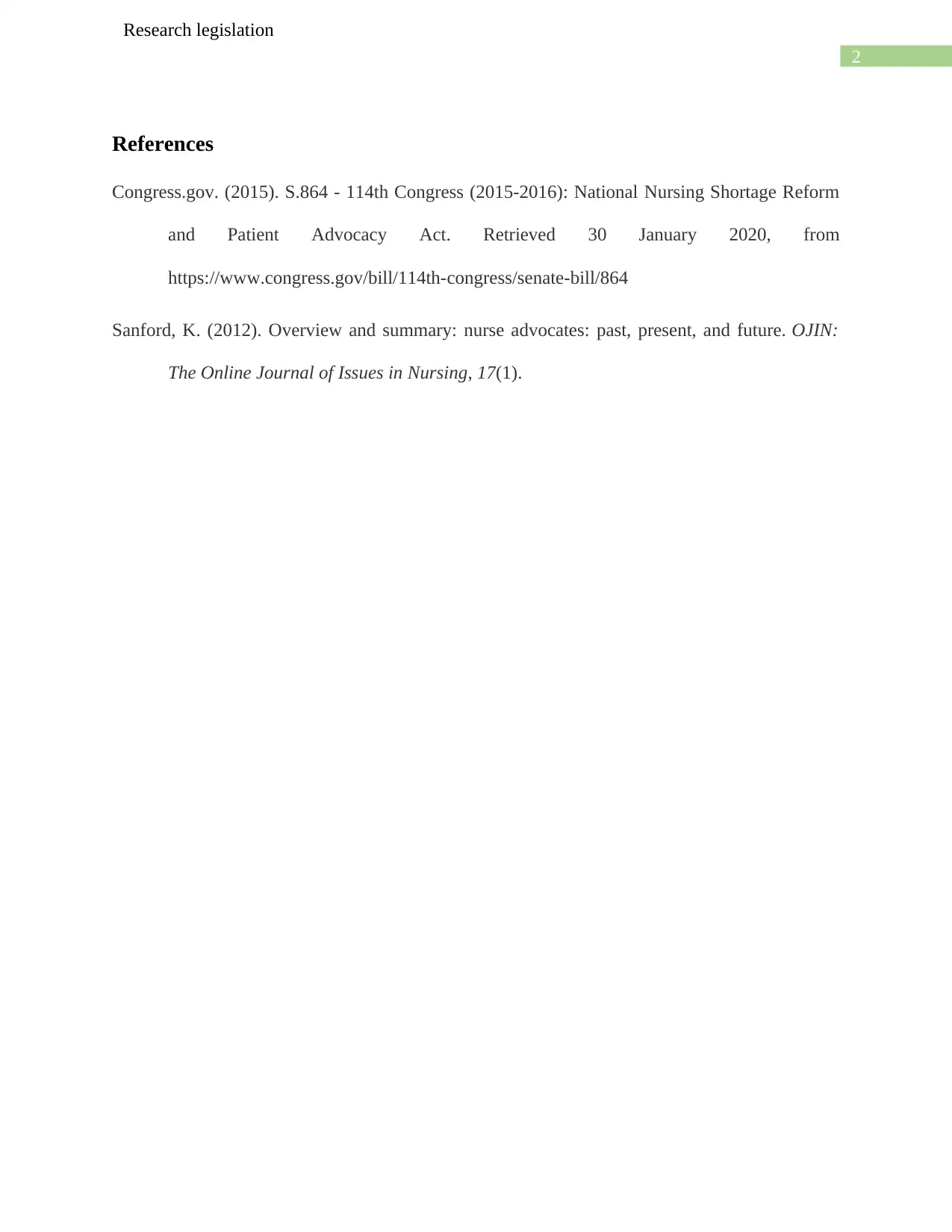Report on Nursing Legislation Research and Patient Advocacy
VerifiedAdded on 2022/08/19
|3
|417
|42
Report
AI Summary
This report delves into the analysis of nursing legislation, specifically focusing on the National Nursing Shortage Reform and Patient Advocacy Act (S.864). The legislation, introduced in the 114th Congress, aims to address the nursing shortage by mandating hospitals to establish and adhere to nurse-to-patient ratios. It also emphasizes the role of nurses as patient advocates, empowering them to influence healthcare decisions and advocate for patient well-being. The report examines the implications of this legislation, including the potential impact on healthcare quality, patient safety, and the rights and responsibilities of nurses. The document highlights the importance of nurse advocacy in improving healthcare outcomes and ensuring patient-centered care, referencing the role of healthcare IT tools. Furthermore, the report explores the implications of the legislation on nurse staffing levels and the allocation of resources within healthcare facilities, emphasizing the need for a comprehensive understanding of the legal and ethical considerations of nursing practice.
1 out of 3










![[object Object]](/_next/static/media/star-bottom.7253800d.svg)